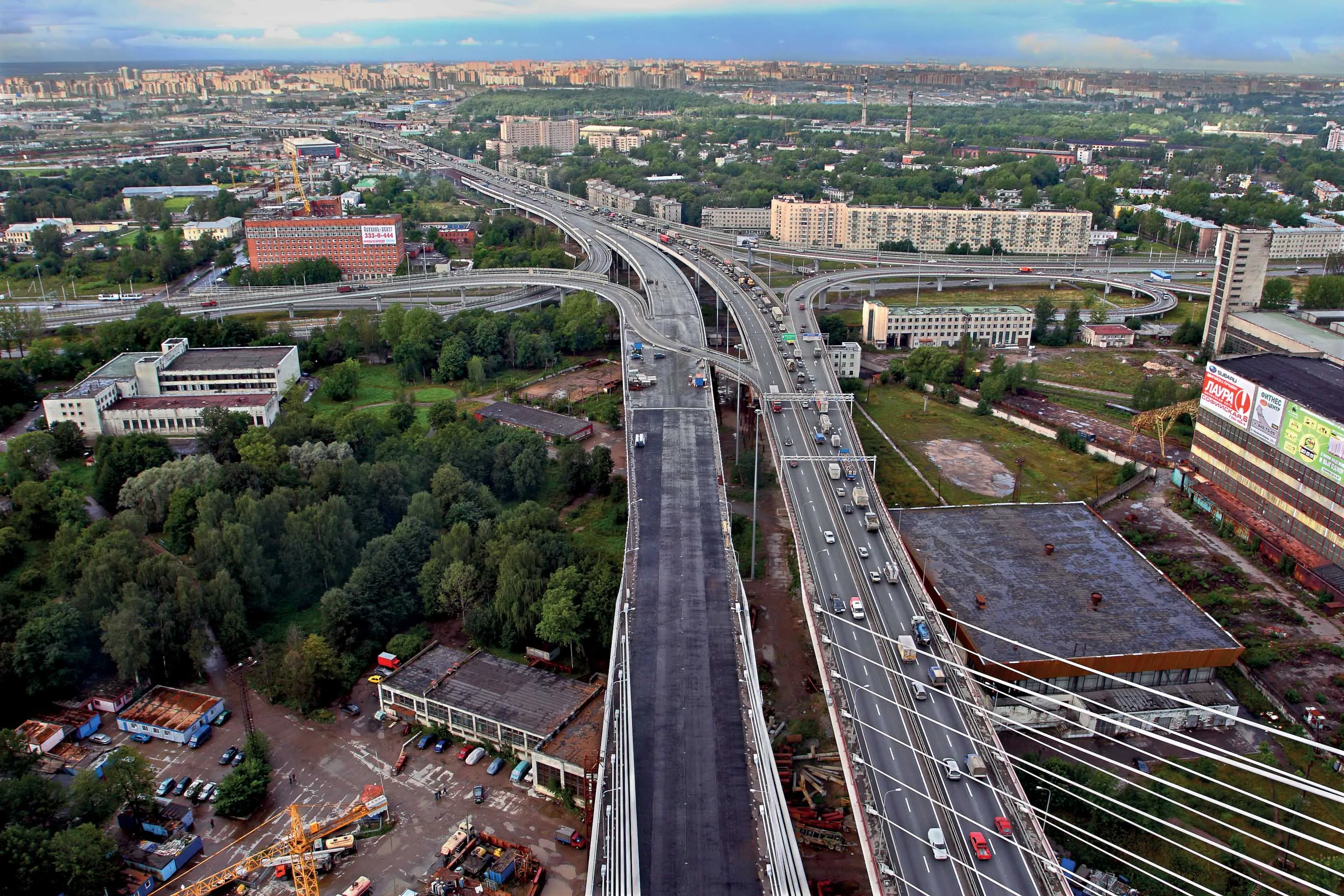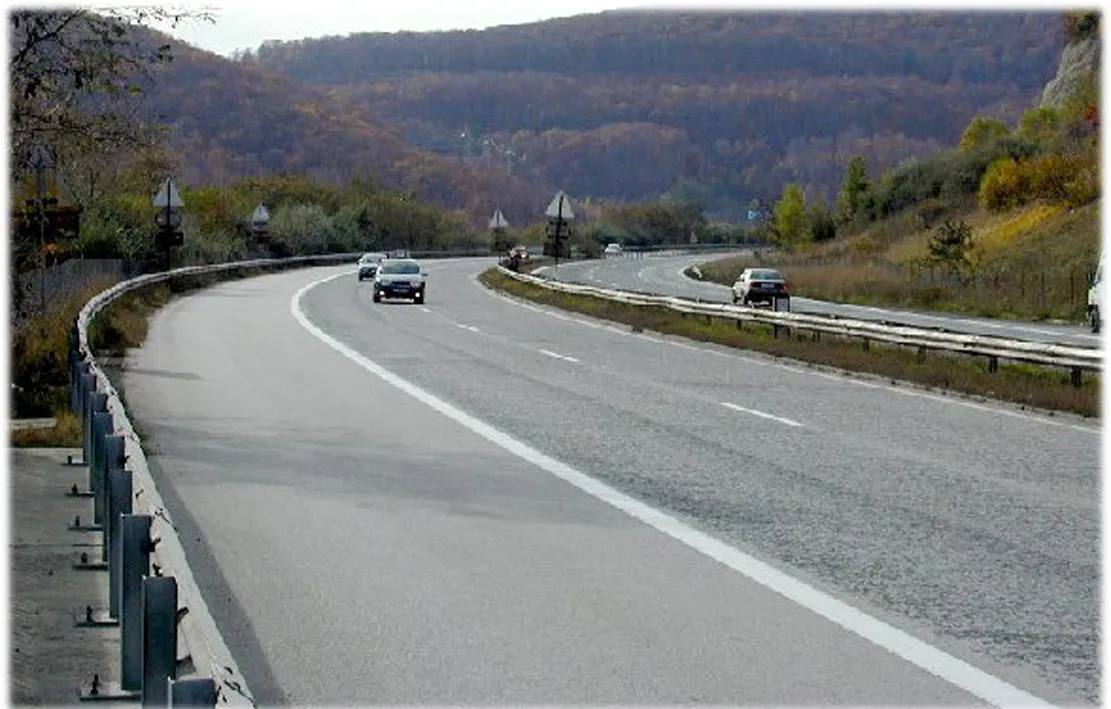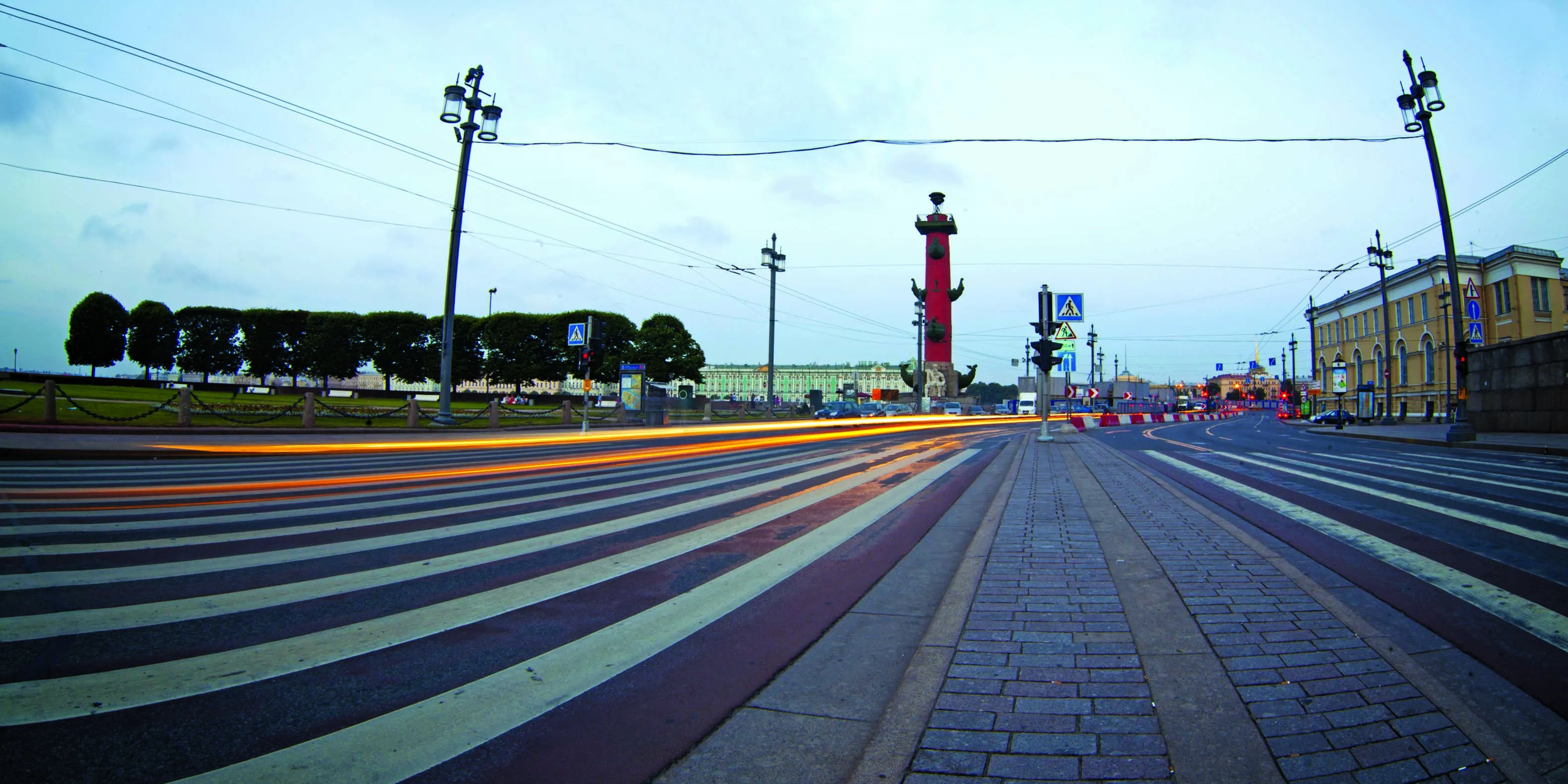The Black Sea Ring Road project will improve transport connections for the region - Eugene Gerden writes. Russia has officially started implementation of a project, known as the Black Sea Ring Road, which involves building a four-lane highway system connecting the countries surrounding the Black Sea. The Black Sea Ring Road is a substantial project, a highway measuring some 7,140km in all.
Among the countries participating in the project are Turkey, Georgia, Russia, Ukraine, Moldova, Romania, Greece and
August 23, 2016
Read time: 4 mins

The Black Sea Ring Road project will improve transport connections for the region - Eugene Gerden writes
Russia has officially started implementation of a project, known as the Black Sea Ring Road, which involves building a four-lane highway system connecting the countries surrounding the Black Sea. The Black Sea Ring Road is a substantial project, a highway measuring some 7,140km in all.
Among the countries participating in the project are Turkey, Georgia, Russia, Ukraine, Moldova, Romania, Greece and Bulgaria. At the same time Armenia, Azerbaijan, Albania and Serbia will also be connected to the road through additional routes.
The project does not have a single budget, as each country will pay for its own section using its own sources. In addition, some of the funding for the project is expected to be provided by the EU, as well as some EU banks and other international sources.
These funding institutions include the European Investment Bank (EIB) and the European Bank for Reconstruction and Development (EBRD), as well as the World Bank (WB) and some others.
The route will pass through several major cities. These include: Istanbul and Edirne in Turkey; Batumi and Poti in Georgia; Novorossiysk, Rostov-on-Don and Taganrog in Russia; Mariupol, Melitopol and Odessa in Ukraine; Chisinau in Moldova; Bucharest in Romania; Haskovo in Bulgaria; Komotini and Alexandroupolis in Greece. The new road is expected to be officially commissioned in 2019-2020.
According to an official spokesman of the Russian Ministry of Transport, the total length of the road in Russia will be 2,230km. Russia’s stretch of the new highway for maximum speed limits of 130km/h and will be designed for lighter vehicles, with a weight limit of 12.5tonnes.
According to Andrew Trubitcin, a spokesman of the Russian Ministry of Transport, a significant part of the Russian section of the Black Sea Ring has already been built. This formed part of Russia’s preparations for the Sochi Winter Olympics 2014, which involved building new roads along the country’s Black Sea coast.
According to calculations by the Russian Ministry of Transport, construction of the new road will cost around 500 million rubles (US$7 million)/km, including costs associated with purchasing land and other items.
The Russian Ministry of Transport expects that up to 113km of the road will be completed by the end of the current year, while a further 167km will be commissioned during 2017-2018.
The Russian government has already started preparing the necessary documentation to implement its section of the project. It is planned that the new road will benefit from modern technology such as RFID tags for freight and passenger transportation at the borders. In addition, it will have dedicated lanes for customs and passport control.
It is expected that the new route will pass through the Crimean Peninsula. However, this will be subject to further negotiation given the difficult political situation between Ukraine and Russia.
In the case of Ukraine, the local2780 Ukravtodor agency, (the Ukrainian state body responsible for road building), has announced its plans to complete a feasibility study of its section of the road in coming months.
Under the terms of the project, the Ukrainian section of the road will link the cities of Mariupol, Melitopol and Odessa, while its overall length will be 618km. Based on preliminary calculations, conducted by analysts of Ukravtodor, the cost of construction of the road will reach $500 million.
According to plans of the Ukrainian government, the majority of funds for the project will be provided by leading EU banks, and in particular the European Bank of Reconstruction and Development (EBRD), in the form of loans. At the same time the remaining funds will be allocated from the country’s state budget. Construction of the road should commence by September 2016.
In the case of other countries participating in the project, an official spokesman of the Turkish Ministry of Transport has recently announced that the country is currently continuing building its section of the highway. This stretches from Turkey’s border with Georgia to the border with Bulgaria. Other details of the project are currently not disclosed.
The initiative for the building of the Black Sea Ring Road dates back to the 2006 meeting of the Black Sea Economic Cooperation (BSEC). This organisation focuses on multilateral political and economic initiatives in the Black Sea region. A year later in 2007, an agreement for the implementation of the project was signed in Belgrade by official representatives of 12 BSEC states. The project was finally approved in 2011 during the meeting of the members of the BSEC in Istanbul.
Russia has officially started implementation of a project, known as the Black Sea Ring Road, which involves building a four-lane highway system connecting the countries surrounding the Black Sea. The Black Sea Ring Road is a substantial project, a highway measuring some 7,140km in all.
Among the countries participating in the project are Turkey, Georgia, Russia, Ukraine, Moldova, Romania, Greece and Bulgaria. At the same time Armenia, Azerbaijan, Albania and Serbia will also be connected to the road through additional routes.
The project does not have a single budget, as each country will pay for its own section using its own sources. In addition, some of the funding for the project is expected to be provided by the EU, as well as some EU banks and other international sources.
These funding institutions include the European Investment Bank (EIB) and the European Bank for Reconstruction and Development (EBRD), as well as the World Bank (WB) and some others.
The route will pass through several major cities. These include: Istanbul and Edirne in Turkey; Batumi and Poti in Georgia; Novorossiysk, Rostov-on-Don and Taganrog in Russia; Mariupol, Melitopol and Odessa in Ukraine; Chisinau in Moldova; Bucharest in Romania; Haskovo in Bulgaria; Komotini and Alexandroupolis in Greece. The new road is expected to be officially commissioned in 2019-2020.
According to an official spokesman of the Russian Ministry of Transport, the total length of the road in Russia will be 2,230km. Russia’s stretch of the new highway for maximum speed limits of 130km/h and will be designed for lighter vehicles, with a weight limit of 12.5tonnes.
According to Andrew Trubitcin, a spokesman of the Russian Ministry of Transport, a significant part of the Russian section of the Black Sea Ring has already been built. This formed part of Russia’s preparations for the Sochi Winter Olympics 2014, which involved building new roads along the country’s Black Sea coast.
According to calculations by the Russian Ministry of Transport, construction of the new road will cost around 500 million rubles (US$7 million)/km, including costs associated with purchasing land and other items.
The Russian Ministry of Transport expects that up to 113km of the road will be completed by the end of the current year, while a further 167km will be commissioned during 2017-2018.
The Russian government has already started preparing the necessary documentation to implement its section of the project. It is planned that the new road will benefit from modern technology such as RFID tags for freight and passenger transportation at the borders. In addition, it will have dedicated lanes for customs and passport control.
It is expected that the new route will pass through the Crimean Peninsula. However, this will be subject to further negotiation given the difficult political situation between Ukraine and Russia.
In the case of Ukraine, the local
Under the terms of the project, the Ukrainian section of the road will link the cities of Mariupol, Melitopol and Odessa, while its overall length will be 618km. Based on preliminary calculations, conducted by analysts of Ukravtodor, the cost of construction of the road will reach $500 million.
According to plans of the Ukrainian government, the majority of funds for the project will be provided by leading EU banks, and in particular the European Bank of Reconstruction and Development (EBRD), in the form of loans. At the same time the remaining funds will be allocated from the country’s state budget. Construction of the road should commence by September 2016.
In the case of other countries participating in the project, an official spokesman of the Turkish Ministry of Transport has recently announced that the country is currently continuing building its section of the highway. This stretches from Turkey’s border with Georgia to the border with Bulgaria. Other details of the project are currently not disclosed.
The initiative for the building of the Black Sea Ring Road dates back to the 2006 meeting of the Black Sea Economic Cooperation (BSEC). This organisation focuses on multilateral political and economic initiatives in the Black Sea region. A year later in 2007, an agreement for the implementation of the project was signed in Belgrade by official representatives of 12 BSEC states. The project was finally approved in 2011 during the meeting of the members of the BSEC in Istanbul.









